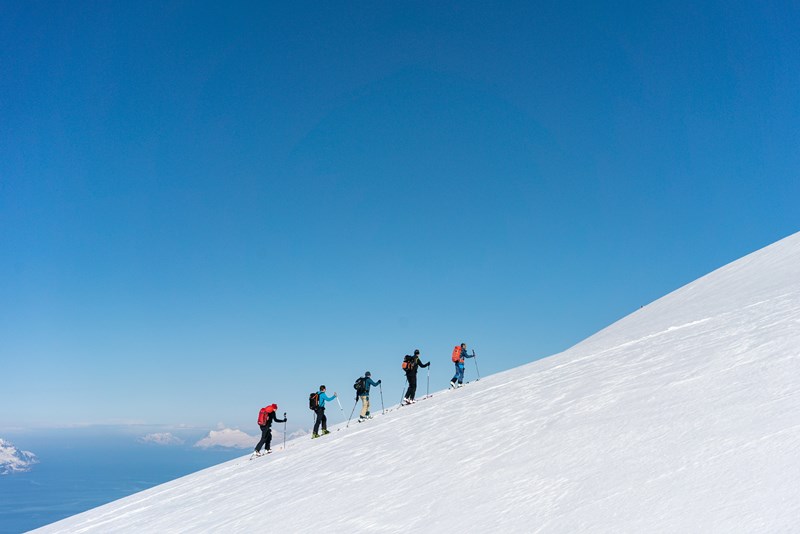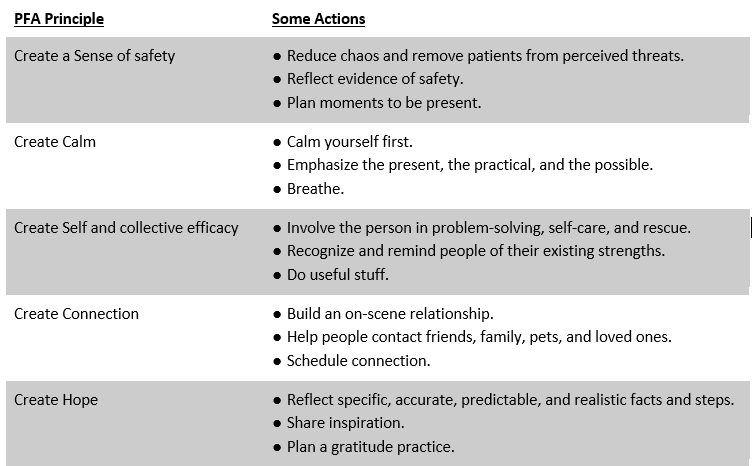By: Paul Dreyer, Responder Alliance
I have worked in the outdoor industry (as a ski bum, river guide, backpacking instructor, staff trainer, CEO, consultant, etc.) for over 25 years. Before I entered the outdoor industry, I was a banker, specifically a financial advisor for a large corporate bank based in New England. For about a year, I… wore a suit to work everyday, sat in a cubicle staring at numbers, and got stressed out most days of that year.
I very clearly still remember the last day I walked out of that bank after giving my two weeks notice. On that day, I made two promises to myself:
My professional world must match my personal beliefs. I would only work at a job when that job or company worked towards a mission that I believed in and if that job was going to be fun for me.
I would not bring stress into my life.

I have told versions of this story often before, and I typically get a very similar response to that second promise. In fact, you are probably saying some version of this response right now, “Yeah, whatever Paul. You can’t just decide that you won’t be stressed.”
But I did.
And, you’re right. My decision to not bring stress into my life has not meant that I am never stressed, but I believe that that promise did commit me to increasing my awareness of what brings me stress, and that increased awareness has been vital in reducing my stress (often truly to zero) ever since.
Unfortunately, I would argue that since I left that bank job 25 years ago, it has only become easier to bring stress into all of our lives. Even before Covid-19 disrupted every aspect of our lives, our current realities were full of micro-stressors, and our work in the outdoor industry is innately full of weighty responsibilities and stress. Now, in a post-pandemic reality and a world that continues to rage with various existential threats, it is easier than ever to layer on physical and emotional stresses into all of our lives.
Now, let me be clear - “stress” is NOT bad. Stress is a natural and important part of our human physiology. However, “stress INJURIES” are bad.
Science Behind Stress Injuries
Why is it important to recognize our stressors that might cause stress injuries? Well, here’s some simple brain science:
Stress can Change the Brain's Structure - The overproduction of myelin that the researchers have observed due to the presence of chronic (even small) stress doesn't just result in a short-term change in the balance between white and gray matter, it can also lead to lasting changes in the brain's structure. Fun side note: Good stress, or the type of stress that helps you perform well in the face of a challenge, helps wire the brain in a positive way, leading to stronger networks and greater resilience.
Stress can Kill Brain Cells - A single socially-stress event could kill new neurons in the brain's hippocampus. The hippocampus is one of the regions of the brain heavily associated with memory, emotion, and learning. It is also one of the two areas of the brain where neurogenesis, or the formation of new brain cells, occurs throughout life.
Stress Shrinks the size of the Brain - Even among otherwise healthy people, stress can lead to shrinkage in areas of the brain associated with the regulation of emotions, metabolism, and memory. While people often associate negative outcomes to sudden, intense stress created by life-altering events (such as a natural disaster, car accident, death of a loved one), researchers actually suggest that it is the everyday stress that we all seem to face that, over time, can contribute to a wide range of mental disorders.
So, what can I do when I recognize stressors in my life?
Studies and research from natural disasters, wars, and other physical and emotional crises have led to the development of Psychological/Stress First Aid (PFA), and the 5 principles of PFA. These principles (and their underlying actions) help reduce the possibility of longer term stress injuries, and they work regardless of whether you are facing one large traumatic event or a series of smaller stressful events. Here are those 5 principles (with some example corresponding actions):

About the Author:
A self-proclaimed mercenary educator, Paul has held various roles with numerous organizations (including NOLS, High Mountain Institute, Watershed School, Where There Be Dragons, and numerous universities and colleges). Paul has worked throughout the world as a facilitator, presenter, curriculum designer, coach, counselor, expeditionary leader, risk management consultant, staff trainer, team builder, and remote medicine instructor. After many years as the CEO of Avid4 Adventure, Paul transitioned to a consultant role supporting multiple organizations, including Responder Alliance where he serves as Strategy Associate. Paul holds an undergraduate business degree from the University of Michigan, a Masters Degree in Counseling from the University of Northern Colorado, and he is trained as a Wilderness EMT.
For more information, please visit our Responder Alliance website and/or please be in touch.